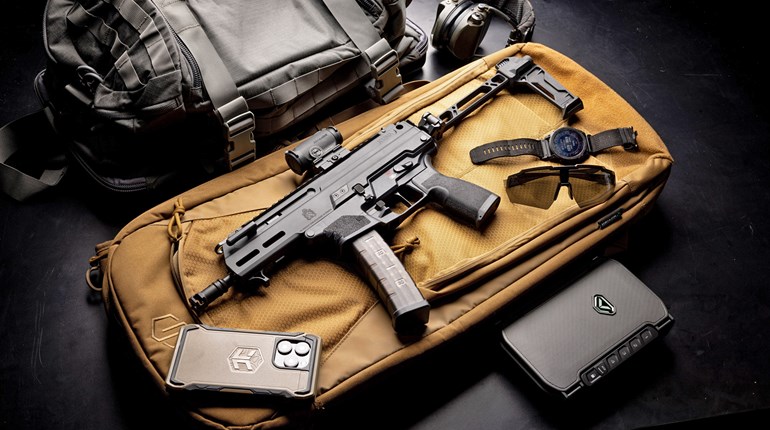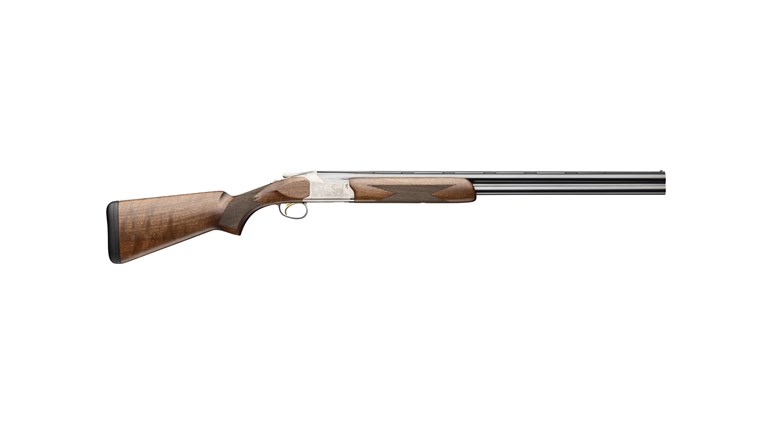
"When the light begins to change, I sometimes feel a little strange. A little anxious when it's dark."
Metal gods Iron Maiden summed up the way many of us feel when we are awakened in the middle of the night. An instinctive, primal, fear of the dark seems to affect us all to varying degrees. The best way to confront this fear is to eliminate it through technology, no matter what your shrink says. Thankfully, many of us already own the most important item needed to make the dark fear us, an AR-15.
So, you've got an AR. Now what? Traditional iron sights or even dot sights and scopes do little good in the dark. The best riflescopes transmit 95 percent of the light that enters to your eye, but 95 percent of nothing is nothing. It would be fantastic to have a thermal sight mounted on your carbine, but unless you drive an Italian sportscar, you can't afford one at $10,000-plus per unit. Even the least expensive night-vision riflescopes run around $700, and at that price, you're looking at a finicky piece of equipment that won't work in total blackness. How, then, can the average armed citizen make his AR ready for the dark? Fortunately, there are a great many additions to even a bare-bones AR-15 that enable it to be an excellent tool for home-defense when the sandman enters.
The first things you'll want to change on your rifle are the iron sights, because iron sights are what you will end up using when optics are rendered useless by the night. Something that pops in the dark is vital, and XS Sight Systems of Fort Worth, TX, has what you need. The company's 24/7 line includes a front post with a white stripe and a green tritium insert. Tritium glows in the dark without having to be exposed to light beforehand, meaning you can stow your rifle safely in a locked case or gun safe and still get optimal performance when you need it at night.
The rear sights include the XS-exclusive Same Plane system, which allows changing the aperture without changing zero. They are available in numerous configurations including dual-aperture rings, dual-aperture with tritium dots and CSAT, which is a combination of a fast-acquisition aperture sight and a notched sight with an integral precision aperture. These combinations all allow for quick sight acquisition. Just put the self-illuminated front sight on your target.
If you've spent less than $1,000 on your rifle, chances are it lacks integral handguard rails. The ability to mount night-fighting accessories requires some ability to mount things on the fore-end, but there's no need to fret or take out a second mortgage. Command Arms Accessories (CAA) imports Israeli-made rails that can mount through the ventilation holes on standard A2 handguards. ProMag offers excellent rail systems as well. I mounted a Lightlink Tactical Forearm Rail on my Rock River Arms Entry Tactical. I cannot stress the importance of having some type of Picatinny rail system on your AR. Without one, it will be a fine rifle for the range, but will have extremely limited home-defense capability in daylight or at night.
CAA also makes a myriad of mounting adapters for tactical flashlights. As our caveman ancestors figured out, the best way to eliminate a fear of the dark is to eliminate the dark. Holding a wooden torch to illuminate the area is a very bad idea if you have smoke detectors, sprinklers or a house made of building materials. Worse, ambient light works both ways, possibly illuminating you more than an intruder and making you vulnerable. Modern flashlights mounted to your rifle will not only prevent your drywall from smoldering, but will direct illumination at your target without illuminating your profusely sweating face and saucer-sized eyes. Tactical flashlights can help diffuse potentially lethal situations by blinding your target. Some even have modes that emit pulses of extremely bright light that can incapacitate an NFL nose-guard. Choices are multitudinous, with excellent options available from Blackhawk, Streamlight and SureFire.
I wanted to try one of Leupold's new lights to see how it measured up to the more experienced tactical flashlight players. The company's MX 221 Modular Flashlight is a versatile tool. It has a single-mode bezel, which contains an 80-lumen LED lamp that can run continuously for 6 hours. A sapphire lens resists scratching, and the aluminum tube holds two lithium batteries in a waterproof housing. The light is activated with a tail-cap switch, which necessitates mounting near a fore-grip so the switch can be easily and comfortably toggled on and off when clearing a room. Leupold offers other bezels and switches that can easily be swapped onto the light, although I would recommend sticking with the LED lamp over more fragile and lower-life xenon bulbs. The light functioned exactly as expected. Mounting a flashlight on your AR is vital to its low-light performance and to your peace of mind if you plan on defending your home at night.
Though not as important as sights or a flashlight, chances are you'll want a laser on your night fighter. Lasers are both tremendously tacticool and choc full of practical home-defense uses. Not only do lasers provide an excellent aiming tool to complement any kind of sight (but especially iron sights), they can also serve as a stark reminder to any naughty home-invader that if he doesn't surrender immediately, some hot lead will go right where that red dot appears on his sweatshirt.
LaserLyte makes an excellent rail-mountable laser for your AR and a barrel-mountable laser for virtually any long gun. The Sub-Compact V2 Laser Sight weighs less than 1 ounce and measures just over 1 inch in length, yet can mark a target up to 500 yards away at night and run for more than 4 hours—pretty impressive for such a small piece of equipment. I would mount this tiny laser on a side rail, where the weak-hand thumb can actuate the toggle switch with ease. For those who elect to forgo a rail system or have run out of mounting points, LaserLyte's Universal Rifle & Shotgun Laser System clamps around the barrel of your long gun. This system offers the advantage of an included curly cord remote pressure switch, making activation simple and adaptable. Either model will increase your confidence in the wee hours and make scofflaws…wee.
I mounted both the light and the laser on CAA's Flash Light Holder Grip Adaptor, which doubles as a vertical foregrip. This nifty item allows the user to toggle the flashlight's activation switch via a button on the unit's rear. It also comes with a small length of Picatinny rail that can be attached to any side of the light mount, providing an ideal attachment point for a laser. Both light and laser are easy to activate when mounted close together on this unit, which provides a comfortable, steady grip for the carbine.
Overcoming a fear as ancient as man's fear of the dark is not simple. After you trick out your AR for the night, you must practice movement, reloading, aiming, etc. in the dark, preferably in pitch black. If you can, go to an indoor range during off-peak hours and ask if you can have the lights turned off (or at least way down). Use your low-light-defeating accessories in concert to acquire the target and put rounds on paper. Keep in mind virtually invisible muzzle flash during the day will be markedly brighter at night, even with a flash hider. You need to make yourself accustomed to the sights and sounds of shooting in the dark with your night fighting rig. Practice builds confidence, and only when you are confident can your fear be conquered. With these additions to your AR and some practice, you need no longer fear the dark, the dark need fear you.




































